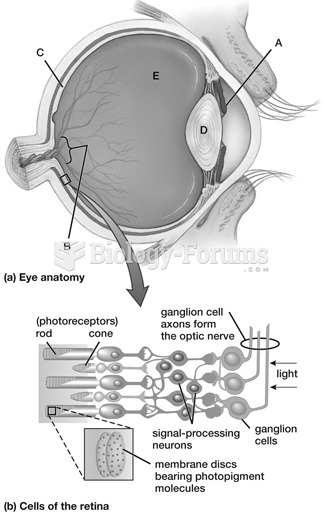|
|
|
The first oncogene was discovered in 1970 and was termed SRC (pronounced "SARK").
Recent studies have shown that the number of medication errors increases in relation to the number of orders that are verified per pharmacist, per work shift.
Astigmatism is the most common vision problem. It may accompany nearsightedness or farsightedness. It is usually caused by an irregularly shaped cornea, but sometimes it is the result of an irregularly shaped lens. Either type can be corrected by eyeglasses, contact lenses, or refractive surgery.
More than 20 million Americans cite use of marijuana within the past 30 days, according to the National Survey on Drug Use and Health (NSDUH). More than 8 million admit to using it almost every day.
Most childhood vaccines are 90–99% effective in preventing disease. Side effects are rarely serious.
 Hyperopia (farsightedness). In the uncorrected top figure, the image would come into focus behind th
Hyperopia (farsightedness). In the uncorrected top figure, the image would come into focus behind th
 A slowdown in athletic ability begins in the 20s, although it is only noticeable for those who are t
A slowdown in athletic ability begins in the 20s, although it is only noticeable for those who are t





